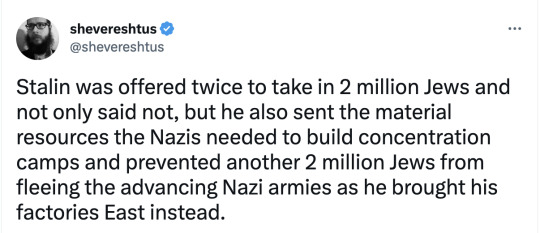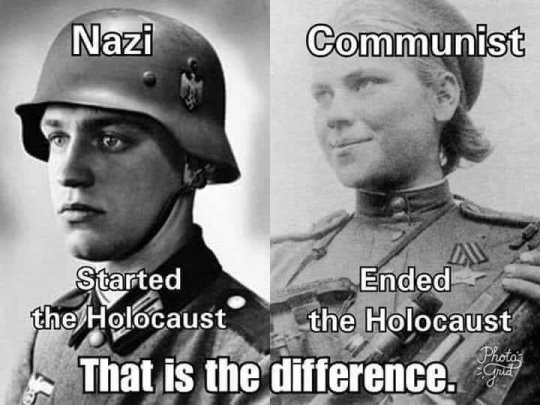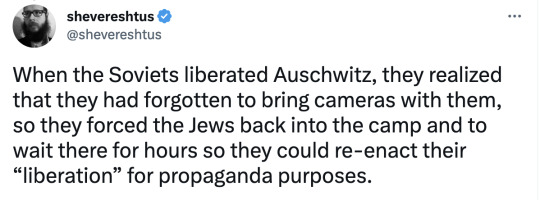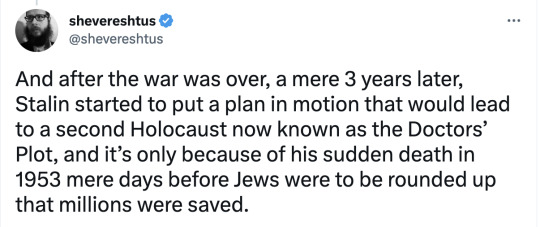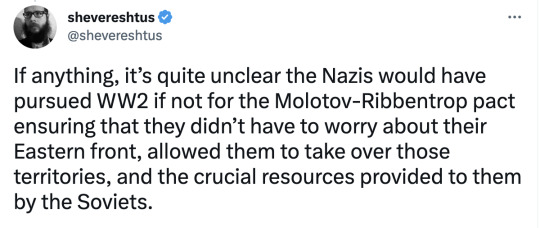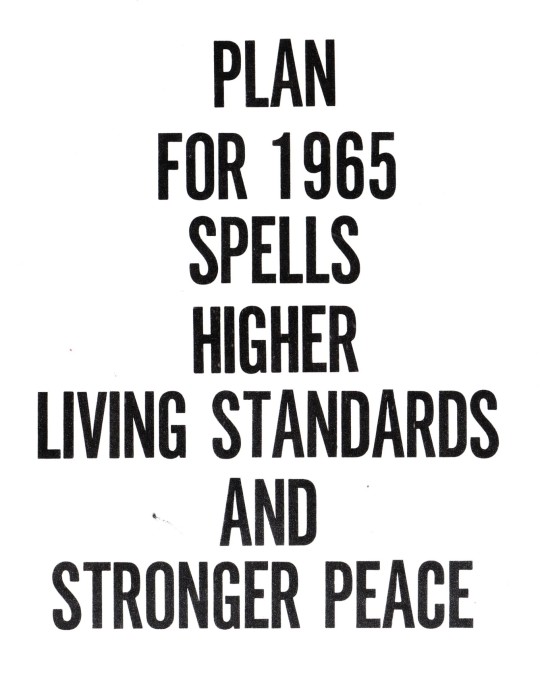#soviets
Note
Was Henry A. Wallace a spy or just a Soviet tool?
I think Wallace was just deeply idealistic and probably a true Socialist at a time when Americans could not differentiate between Socialism and "evil" Soviet Communism (well...Americans still can't do that), and that his idealism allowed the Soviets to use him to their advantage. But I definitely don't believe he was a spy or even a conscious Soviet asset.
Calder Walton wrote a book last year called Spies: The Epic Intelligence War Between East and West (BOOK | KINDLE | AUDIO) that was published my Simon & Schuster and I actually posted this excerpt a few months ago about Wallace and the Soviets during the Cold War that might answer your question a bit better:
Russian archival records obtained for this book show that [Joseph] Stalin colluded with his favorited U.S. candidate in 1948, Henry Wallace, [Franklin D.] Roosevelt’s Soviet-friendly wartime Vice President.
The nature of Wallace’s relationship with the Kremlin has long been a subject of speculation. Soviet intelligence is known to have unimaginatively code-named the Vice President CAPTAIN’S DEPUTY during the war. But no evidence has ever emerged that Wallace was recruited as a Soviet agent. He was, however, we can now discern, a Soviet tool. He sincerely believed that “peaceful coexistence” between the Soviet Union and the United States not only could be achieved, but was essential for world peace. All the while, he looked away from (and naively followed Soviet propaganda denying) the existence of Stalin’s mass forced labor and terror programs. According to [President Harry S.] Truman’s counsel Clark Clifford: “It was never clear to me how aware he [Wallace] was of the uses to which the Communist Party was putting him, but whether he knew it or not, he was following the communist line, serving communist ends, and betraying those Americans who supported him as a serious alternative to the two main candidates [in 1948].” Wallace’s naivete about Soviet communism turned him into an asset for Stalin, if not a recruited Soviet agent.
Wallace decided to run in the 1948 U.S. election as the Progressive Party nominee. In April and May that year, he secretly liaised with Stalin about public policies that would be advantageous for the Soviet Union, coordinating his public statements with the dictator. Wallace secretly met with the youthful Soviet ambassador to the UN in New York, Andrei Gromyko, who dispatched the candidate’s messages to the Soviet foreign minister, [Vyacheslav] Molotov, and to Stalin himself. In his memoirs, Gromyko admitted to meeting Wallace, but downplayed the meeting’s significance, suggesting that after talking with him he considered that Wallace had lost contact with the pulse of American life. Archival documents in Moscow reveal that in fact Stalin took Wallace’s position and candidacy seriously, approving his public positions, and answering questions that the former Vice President put to him, which Stalin annotated in his distinctive pencil. Their alignment produced a published open letter from Wallace to Stalin, vetted by the Soviet leader in advance, to which Stalin then publicly replied, all as agreed between the two men.
Wallace’s Presidential election bid in November 1948 dismally failed; he ended up getting barely 2 percent of the vote, while Truman, to his and the nation’s surprise, won a second term. He defeated New York Governor Thomas E. Dewey in one of the greatest upsets in U.S. Presidential history. Ironically, the staff of Wallace’s failed 1948 campaign included none other than the Soviet atom spy Ted Hall. Following his unsuccessful White House run, Wallace had a crisis of faith in his pro-Stalinism. This may have been caused by his realization that Stalin had used and discarded him after the election. Stalin had gotten what he wanted from Wallace. In 1952, Wallace published an article, “Where I Was Wrong,” describing “Russian Communism” as “utterly evil.” The Kremlin and its intelligence services nevertheless learned an important strategic lesson for later in the Cold War: that it could use the freedoms inherent within American electoral campaigns to influence candidates favorable to the Soviet Union.
#History#Henry A. Wallace#Vice Presidents#Vice President Wallace#Henry Wallace#Soviet Union#Soviets#Cold War#Communism#Socialism#1948 Election#Joseph Stalin#Stalin#Spies#Spies: The Epic Intelligence War Between East and West#Calder Walton#VPs#Cold War History#Espionage
8 notes
·
View notes
Text
Now and then a realization comes to me – how much of cultural identity, local customs and folklore was lost in Poland because of our history in the past century or so. I don’t mean the big and obvious things like our flag, language, our anthem and such. Those we as a nation managed to keep in over a century when Poland did not exist and those are not lost today.
I’m not a historian and I made no research on this matter, I’m just analysing what I see basing on the recent history I know and the example of my own family (and my environment). And what hit me recently is that I don’t have things like local customs characteristic to my town/area, or a traditional gear to recreate and wear on occasions. Yes, there are parts of Poland that still have those, like mountain folk or Kashubia. I work with a guy from the mountains and when he showed me some pics from his son’s christening, all the people wore traditional gears. I admit a part of me was a bit jealous, considering that I enjoy sewing and would gladly make an outfit for myself. Of course, I still could recreate one of the traditional outfits from across Poland, but – they mean nothing to me.
I feel like our situation after the WW2 is largely to blame. Poland was a very young country then, ruined after just 20 years of regained independence. The Russians forcefully moved people all over the country, mixing them for exactly this purpose – wiping out the cultural integrity, something Poland had not lost during the partitions time. Now I come from so called Recovered Teritorries, lands that were incorporated into Poland after WW2. People came there after the war from all sorts of places, either looking for a new start or having been forcefully relocated. Each of my grandparents came from completely different part of Poland, or even from terrains that are no longer Polish today.
And the result is – the parts of Poland I come from don’t have shared history longer than two-three generations. There are traditions within families, basing on what people had known. My mother had different traditions for Christmas or Easter than my father. In time they mixed of course, and of course there are some “general” traditions for Christmas etc, but then it shows in details that some came from specific places and are not widely known.
I don’t know if it is the forced mixing that did the trick, or if it was because the times after the war were simply too hard and why would you care about how your grandmother did Christmas or what she wore on official occasions, when you are a lone mother with three children, running away through half of the country to erase your past and conceal the fact you worked for Home Army (Armia Krajowa). Or when you were forced to live there far away from your family, because you had the misfortune of being forcefully taken into Wermacht and ended up as a prisoner? I guess if I asked my friends or my neighbours, they would likely share dozens of such stories.
In terms of family heritage – there is nothing older than two-three generations. The few precious oldest things I have is a wooden box from my gran, which she got from her father as a child. Or grandfather’s watch. Small items you were able to carry.
In a way, the events of the last two centuries made us (in some parts of Poland at least) a very young nation despite having a thousand years of history as a country. It’s not something I normally acknowledge, but now and then it just pops up. I guess I might have liked to put on a traditional outfit for Christmas or birthday, or perhaps for some patriotic event – and I would have liked it to be something historical and not a white-and-red tshirt like fans wear on sport events. I have none. It’s not a complaint or something that upsets me, but once I realized that, it’s hard not to see it.
I’m not even sure what was my point of writing it all down, since I guess no one will read that. But now as I finished writing, I can’t not think about our neighbours in Ukraine facing now the war and possible cultural erasure on parts of their lands. It’s been nine years already and it shows in the people I work with. I really hope they will not face similar fate.
#Poland#Poland history#Polish culture#Culture erasure#Soviets#Polish history#Personal thoughts#Aftermath of cultural cancellation
14 notes
·
View notes
Text
youtube
Egyik kedvenc videóm a 80-as évekből. Modern Talking, a szovjet vasak afganisztánban, bruce lee meg adidas matrica a btr-ben. Egészen csodálatos egyveleg.
Afgan: the soviet experience dokufilmből (https://www.imdb.com/title/tt3608008/)
5 notes
·
View notes
Text
⭐ 𝑫𝒐𝒍𝒑𝒉𝒊𝒏𝒔 𝒘𝒊𝒕𝒉 𝒈𝒖𝒏𝒔 (Friday Tale)
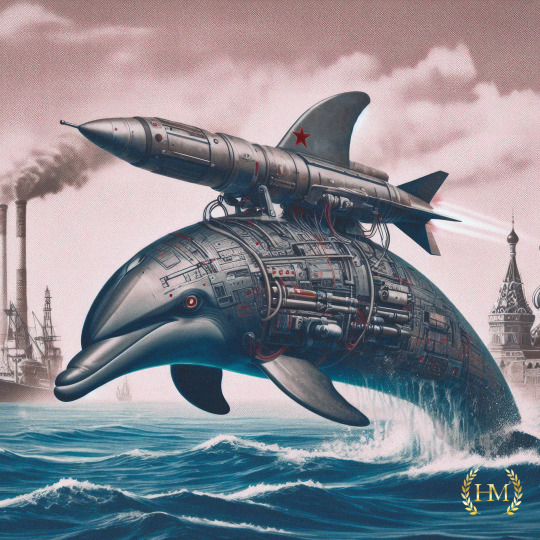
It was supposed to be a clandestine experiment for the Soviets back in '86, a wild idea of using dolphins to infiltrate the USA by sea. Just an experiment, but you know how these things go—experiments sometimes morph into reality, and when they do, chaos reigns.
In the fall of '86, Dr. Irina Petrovna Volkov toiled away in her secretive labs tucked somewhere in a shadowy base in the far north of Russia. For seven straight years, she delved into training and weaponizing dolphins against the arch-nemesis, capitalist America. This year was the charm; with new-fangled computers, she imprinted on the cetaceans the art of recognizing an American fleet, base, or even a lone swimmer along the coast—launching deadly nuclear missiles at them. The dolphin army, now 200 strong, had survived the grueling video-training, evolving from the playful sea creatures into a hybrid of a well-trained Rottweiler and a living machine gun. The Soviets were ecstatic, deeming winter the opportune time to unleash the marine arsenal, testing them on the Alaskan coasts with the locals as unwitting subjects. Who'd care if some indigenous folks vanished in the process? The American government wouldn't flinch at a dolphin-induced disappearance. Midday struck, and the dolphins surfaced, armed to the fins. A lone fisherman's warning fell on deaf ears; the chief of the tribe sought help from the authorities, but none took the "drunk" natives seriously. So, the Eskimos resorted to ancestral defenses. As they readied harpoons, the local shaman intervened, murmuring to the crowd. In silence, he approached the coast, sang an eerie melody, and just like that, the dolphins vanished. When questioned about his mysterious actions, the shaman cryptically replied, "I've sent arrows to those who shot at us. These arrows will make their hearts tremble until they fall on their knees."
Come April 25, 1986, a Ukrainian fisherman's claim about dolphins in the Dnipro River fell on deaf ears. Some days later, the Chernobyl nuclear plant's catastrophic meltdown, blamed on operator errors, dominated headlines. Yet, Dr. Irina Petrovna Volkov and her team, alongside Alaskan Natives, discerned a different truth—a truth that echoed louder than Chernobyl's roar, heralding the fall of a colossal regime in the annals of human history.
#HELMORT#Dolphins#Guns#Soviets#Experiment#Chaos#Secret#Labs#Russia#Enemies#Computers#Training#Army#Winter#Arsenal#Alaska#Locals#Fisherman#Eskimos#Harpoons#Shaman#Arrows#Hearts#Knees#Chernobyl
2 notes
·
View notes
Text
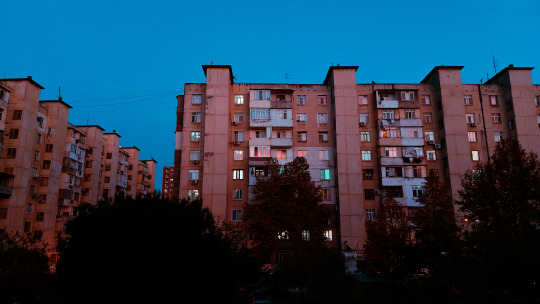
#black#dark#purple#blackcoveredinpurple#sky#aesthetic#sun aesthetic#sunsets#sunset#apartment#buildings#building#architecture#soviet#soviets#soviet union#soviet architecture#saturated
3 notes
·
View notes
Text
Destroy All Humans! Characters: Remake and Original

Crypto
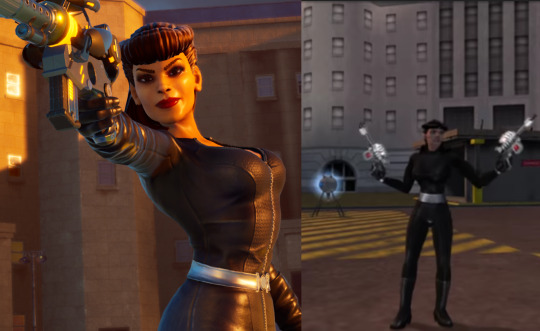
Silhouette
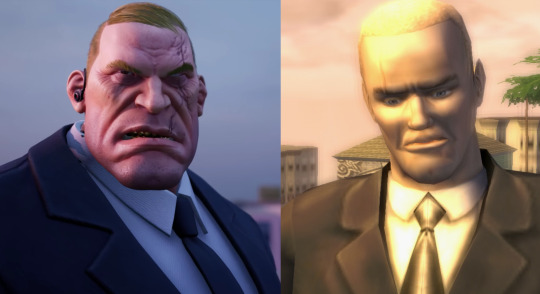
Agent Oranchov

Reginald Ponsonby-Smythe

General Dick Armquist
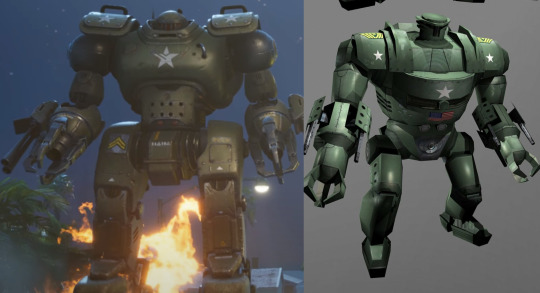
U.S. Army Power Suits

Natalya Ivanova

White Ninja Clan
#Destroy All Humans#Destroy All Humans!#Destroy All Humans Remake#Destroy All Humans 2 Reprobed#scifi#satire#remake#reprobed#spy#50s#60s#UFO#Furon#Americans#Soviets#USA#USSR#Cold War#video games#ninja#japan
72 notes
·
View notes
Text
Bolshevik seizure of power
'The instrument of the seizure of power in Petrograd, the Military Revolutionary Committee, was created not by the Bolsheviks, but by the Petrograd Soviet as a whole, to organize the defense of the capital against either a second military coup or a German attack. From about 20 October the MRC began taking control of strategic points in the city in order to ensure that the Provisional Government did not prevent the second All-Russian Congress of Soviets from meeting. The final operation was launched on 24-25 October, when Kerenskii tried to close Bolshevik newspapers and arrest leading Bolsheviks. Most participants in the rising thought that they were fighting for "All Power to the Soviets," to be embodied in the form of a coalition socialist government which would endorse the authority of the workers', soldiers', and peasants' assemblies throughout the country.
However, at the Congress of Soviets Lenin was unexpectedly able to set up a single-party Bolshevik government (the "Council of People's Commissars," or Sovnarkom) because by then he had secured the support of a sizeable contingent of SR delegates.
... In most localities the Bolsheviks were able to seize power in similar ways. Where they were popular, they used their majority to dominate local soviets; where they were less popular, they set up or took over an armed militia, usually called a Military Revolutionary Committee, to coerce or replace the soviet and enforce "All Power to the Soviets" on their own terms.
Within a few months, wherever they held power, the Bolsheviks consolidated it by closing down nonsocialist newspapers and establishing their own security police in the form of the Cheka, or Extraordinary Commission for Struggle against Speculation and Counterrevolution. They allowed popular elections to the Constituent Assembly to go ahead, but when it became clear that the SRs were to be the largest single party in it, the Bolsheviks simply closed the assembly down.'
Russia and the Russians, by Geoffrey Hosking
#october revolution#russian revolution#bolsheviks#lenin#soviets#military revolutionary committees#kerensky#provisional government#left sr#socialist revolutionary party#cheka#political police#party state
2 notes
·
View notes
Text
soviet union is the most vile and hypocritical swamp
On the photo Katyn massacre in Poland
Soviets murdered 22,000 Polish officers and intelligentsia in April-May 1940, after invading Poland together with nazi-germany

#katyn massacre#soviet union#never again#nazi#nazi-germany#soviets#poland#poland-massacre#1940#WW2#WW2 pictures#poles#hitler#stalin#war#war 1940#ssr
31 notes
·
View notes
Text
On Soviets
"The word “soviet” roughly translates as “council.” These workers councils were first formed during the 1905 Revolution to coordinate strikes among workers and broker deals with factory owners. They were seen as a direct embodiment of proletarian power. This association became important to legitimacy of the St. Petersburg soviet after the tsarist regime fell in 1917 and was later used by the Bolsheviks to define the Soviet Union as a workers' state."
Source: Russian History: from Lenin to Putin (Lecture). University of California, Santa Cruz.
#Soviets#Russian History#Bolsheviks#Bolshevik Party#1905 Russian Revolution#1917 Russian Revolution#The Russian Revolution#the Soviet Union
6 notes
·
View notes
Text
#OTD in 1967 – A day after being captured, Marxist revolutionary Ernesto “Che” Guevara is executed in Bolivia.
Socialist revolutionary and guerilla leader Che Guevara, aged 39, is killed by the Bolivian army. The U.S.-military-backed Bolivian forces captured Guevara on 8 October while battling his band of guerillas in Bolivia and assassinated him the following day. His hands were cut off as proof of death and his body was buried in an unmarked grave. In 1997, Guevara’s remains were found and sent back to…

View On WordPress
#Alberto Korda#Argentina#Che#China#CIA#Co. Clare#Co. Galway#Congo#Cuba#Ernesto Che Guevera#Ernesto Rafael Guevara de la Serna#Fidel Castro#Guatemala#Irish-Argentinian History#Jim Fitzpatrick#Kilkee#revolutionary#Royal Marine Hotel#Soviets#United States#USSR
5 notes
·
View notes
Text
Who is the superior mid-1980s performance enhancing Soviet boxer, Ivan Drago or Soda Popinski?
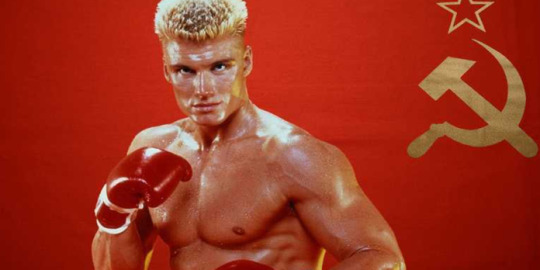

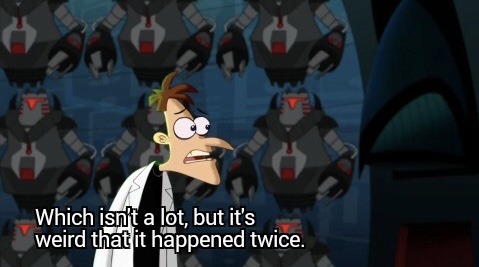
23 notes
·
View notes
Text
"The Triumph of Broken Promises" by Fritz Bartel

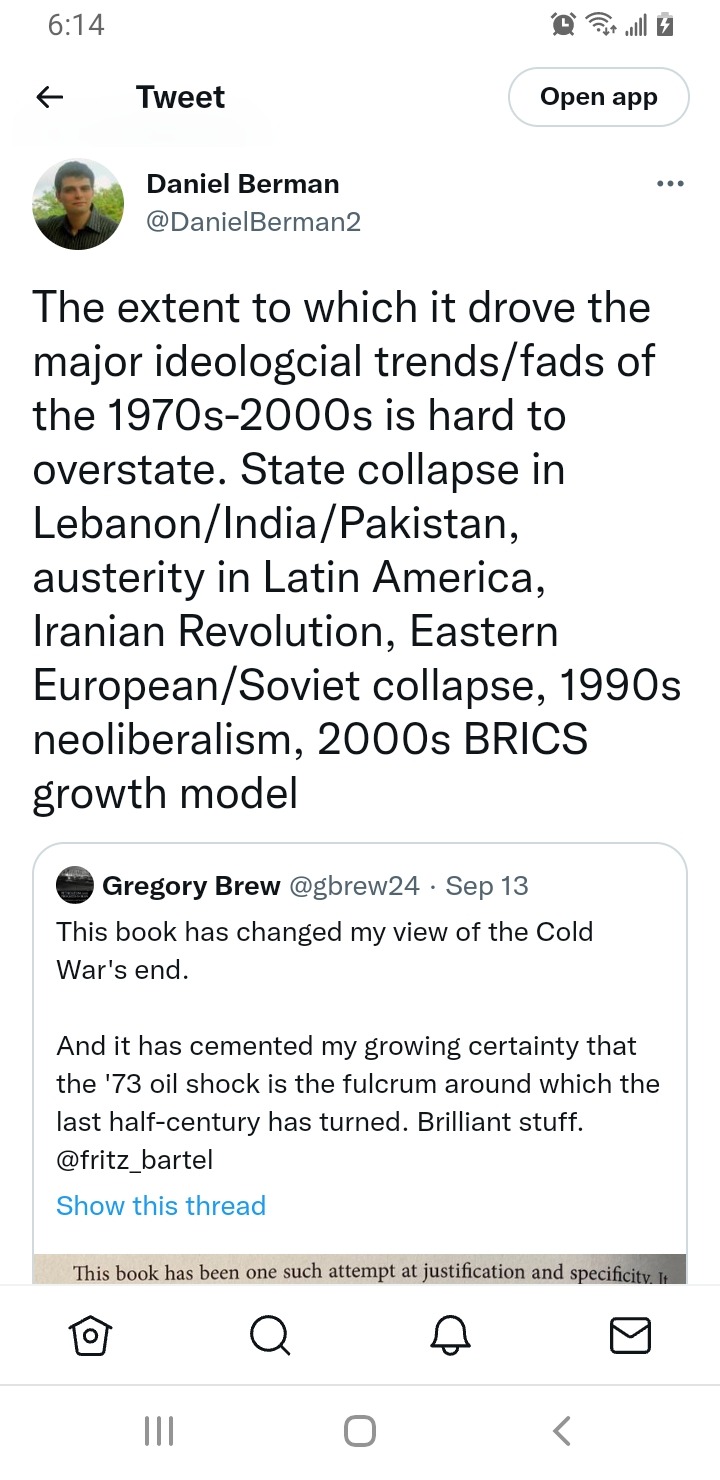
#Fritz Bartel#Triumph of Broken Promises#economy#economics#oil shock#1973 oil embargo#ussr#soviet union#soviets#neoliberal#neoliberalism
2 notes
·
View notes
Text
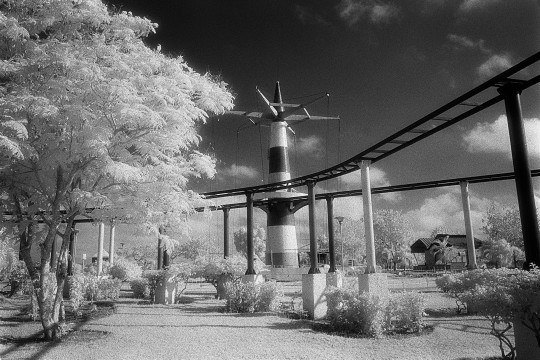
Abandoned fun park, built by the Soviets. Guardalavaca, Cuba.
March, 1995
B&W infrared film
5 notes
·
View notes
Text
Love the contrast between the Americans’ “Apollo” and the Soviets’ “Sputnik.” You got the Americans naming their rocket after a Greek god trying to communicate the grandness and importance of this rocket. And you got the Soviets naming their rocket “fellow traveler.” Like a friend you go on an adventure with together. This rocket is our little friend lol
#i think its cute#they took the mars rover approach#humanizing the space craft making it cute making us (me) project emotions onto it#the soviets also used imagery of laika in propaganda a lot#which is pretty fucked up imo#but if i grew up in the soviet union that shit wouldve definetly worked on me lmao#the narrative of a heroic little dog going to space and being honored by the whole country#as cruely wrong as it is its very appealing#the soviets knew what they were doing man they didnt reveal how laika really died until like. the 2000s#bc they knew people really cared about that dog#they liked the narrative around her
78K notes
·
View notes
